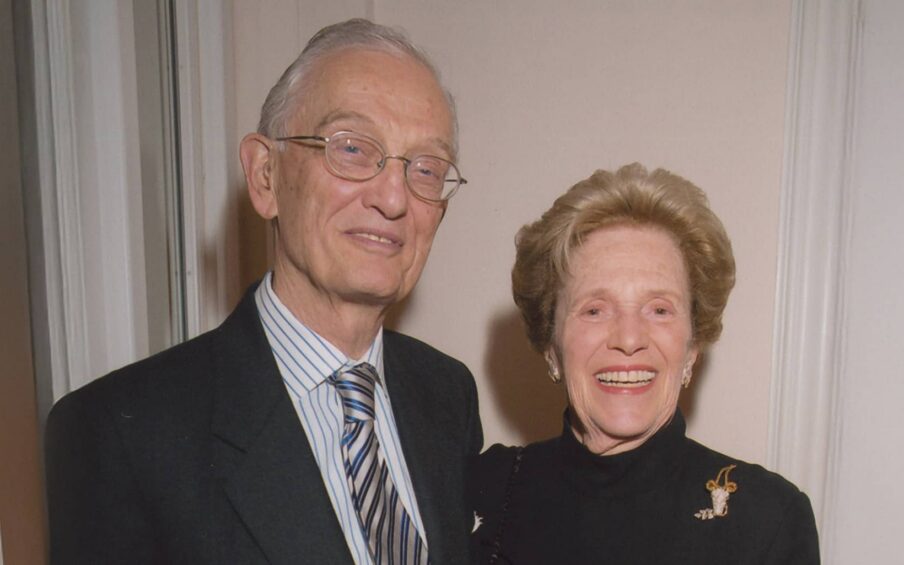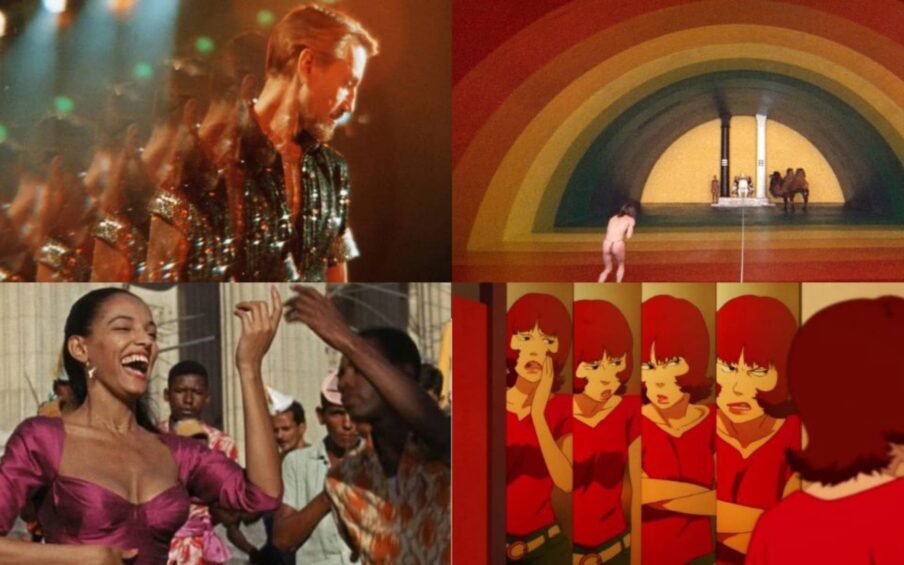Dr. Ethan Johnson is the chair of Portland State University’s Black Studies Department and works across multiple fields of study related to the experiences of people of African descent. He will facilitate In Dialogue: A Question of Color on Nov. 12, a sold-out discussion in conjunction with Art and Race Matters: The Career of Robert Colescott (on view at the Museum through December 13).
Colorism and the idea of multiraciality are very important concepts within communities of Black people. In my own life they have been huge. I am the child of a Black father and white mother. I believe this has been critical to my development as a scholar in Black studies. My dad’s family escaped from New Orleans, Louisiana because his uncle had been murdered by a white man that wanted his job as a porter on a train. They moved/ran to San Francisco, California. My mom’s family moved to San Diego, California, because her father had asthma and a doctor told them he should move to a drier climate. As I write that I can’t help but contrast the differing reasons for movement. My dad joined the navy and was stationed in San Diego where he met my mom. They fell in love and were married in 1963 and had three children. Their marriage was rocky. While it was rarely stated, I believe it was due to anti-Black racism. My dad acknowledged that they received undue attention from people. My mom wore rose-colored goggles and preferred to see a “beautiful couple.” However, my dad also—and I think this is true for many who attempted to escape racism in the South—did not want to think about racism either. He rarely discussed racism directly except if I brought it up. He also distanced himself from other Black people. Besides his family, I recall him having very few close relationships with Black people.
As my brother, sister and I grew up we, however, were confronting anti-Black racism everywhere. I often tell my students how when I was 6 years old and attending a very liberal private school in Berkeley, California a ‘friend’ of mine named Ian came up behind me while I played on the blacktop of the school and hit me on the head with a pipe. I was knocked out and when I woke I was bleeding from a gash on my head. When Ian was asked why he did what he did, he explained that “I wanted to see if Black people had green blood.” Somewhere along the line in his short six years of life, he had learned that Black people were sub-human.
Long story short, I am a Black person. My schooling experiences went on to reinforce this to me as I was segregated in low academic classes with other Black youth and then isolated in honors courses. I watched also as my sister was overwhelmed and berated with sexual attention by Black and white men because of her ‘exoticness.’ Over the years I have had various platonic relationships with mixed Black/white women and have seen how they too have been bombarded as a fetish.
While I grew up Black people let me know also that I was different because of my hair, which they called ‘good hair’. But I also remember that they would say I was still Black. I myself too, fell victim to the idea of colorism and its supposed benefits for a short time as a young person.
Robert Colescott’s paintings and the documentary A Question of Color resonate deeply with Black Studies. Both highlight the coming together of sexuality and blackness and how color/multiraciality get into our bodies. Colorism within communities of Black people is the result of anti-Black racism. What some would call ‘benefits’ were bestowed on lighter-skinned Black people that resulted from the sexual assault white men did to Black women. This assault is still alive today in our bodies. One of the crazy things we say is that Black people of various hues have developed an identity complex as a result of colorism even though they did nothing to cause it. It is white society and its junior partners that has the complex, the fixation and obsession on skin color as some sort of thing that has value. Lastly, color is significant beyond how Black people treat each other. Indeed, the differences between lighter and more richly hued Black people along multiple indicators of socio-economic standing such as education, health, incarceration, employment appear to be as heavily weighted as those between Black and white people. Thus, your life will likely be better the closer you are to whiteness phenotypically through no effort. of your own. This speaks much to multiraciality and urges us to question its current popularity.
—Dr. Ethan Johnson, Chair and Associate Professor
Black Studies Department, School of Gender, Race, and Nations
Portland State University
In Dialogue: A Question of Color – Sold Out
November 12, 2020
In Dialogue is an occasional series of interdisciplinary, discussion-based sessions that explore art on view at the Museum in relation to works in the humanities, social sciences, and sciences. This fall, we will take inspiration from Art and Race Matters: The Career of Robert Colescott to consider timely and key exhibition themes that explore the dynamics between race and gender, as well as the function of satire within the work. This In Dialogue series is supported by Cheryl and Rena Tonkin, and Marv Tonkin Leasing Company, In Memory of Alan Baron Tonkin.
Facilitated by Dr. Ethan Johnson, this In Dialogue will center discussion around the film A Question of Color and the ways in which colorism occurs within the Colescott exhibition. Ethan Johnson is an associate professor in and chair of the Black Studies Department in the School of Gender, Race and Nations at Portland State University. He received his doctorate from the Social and Cultural Studies in Education Program at the University of California, Berkeley. He has published in various journals such as Race, Ethnicity and Education, The International Journal of Qualitative Studies in Education, Souls, Ethnography and Education and The Oregon Historical Quarterly. He has also co-edited the book called Education and the Black Diaspora: Educational Perspectives, Challenges and Prospects.
He works across multiple fields of study related to the experiences of people of African descent: education, popular culture, race and racism, history and African Diaspora Studies. Currently, he is working on a number of projects. One examines the educational experiences of Afro-Latin@s in Spain and the other focuses on the significance of complexion and phenotype in the lives of Black males living in Portland for which he has an article coming out this year. Professor Johnson is the host and organizer of the Black Bag Speaker Series whose mission is to create a space on campus in which scholars and/or activists doing work that relates to people of African descent in Portland and the nation can engage with the university and community.



